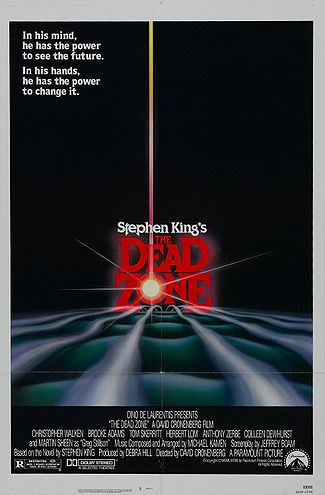Released in 1979, Fast Company is a Canadian film about fast cars and the fast-living people who drive them. Lonnie Johnson (William Smith) is a veteran drag racer who is so good at his job that his nickname is “Lucky Man.” He rarely loses a race. He’s never without an adoring fan or two, though he always remains loyal to his girlfriend, Sammy (Claudia Jennings). Lonnie is so lucky that, even when one of his cars explodes, he walks away without even a scratch.
Lonnie and his protégé, Billy (Nicholas Campbell), are being sponsored by Fast Company, an international oil consortium. The money is okay but Lonnie is getting old and he would like to step back and spend some more quality time with Sammy. Unfortunately, the team boss is Phil Adamson (John Saxon) and the viewers knows that Phil is a bad guy because he’s played by John Saxon and, instead of driving to the races, he pilots his own private plane. When Lonnie starts to rebel against Phil’s management, Phil schemes to not only replace him and Billy with rival driver Gary Black (Cedric Smith) but he also plots to repossess Lonnie’s prized car!
Okay, so it’s kind of a silly and predictable film. In fact, there’s really only two reasons why Fast Company is remembered today.
One is because it was the last film to feature B-movie star Claudia Jennings before her death in a traffic accident. Jennings was nicknamed the “Queen of the B movies” and, over the course of her brief career, appeared in a lot of films about fast cars. She gives a likable performance as Sammy, even if the film’s script doesn’t really give her much to do.
Secondly, this film was directed by David Cronenberg. This was Cronenberg’s first time to direct a film that he hadn’t written. This was his first job as a “director for hire” but, interestingly enough, it was while directing this film that Cronenberg first worked with some of his most important future collaborators, including cinematographer Mark Irwin and actor Nicholas Campbell. Cronenberg directed Fast Company in between Rabid and The Brood and Fast Company might as well take place in a different universe from either of those films. To be honest, there’s not much about this film that would lead anyone to suspect that it had been directed by Cronenberg if they hadn’t already seen his name in the credits. Cronenberg’s signature style is really only evident when the camera lingers over the scenes of the mechanics working on the cars. In those scenes, there’s a hint of the Cronenberg that everyone knows, the Cronenberg who is fascinated by both the relationship between man and machine and how things work inside the body of both the driver and the car.
For the most part, Fast Company is a typical 70s racing film, one that was made for drive-in audiences and which makes no apologies for that fact. (Nor should it.) There’s a lot of shots of denim-clad Canadians cheering as their favorite driver crosses the finish line. William Smith brings a world-weary dignity to the role of Lonnie Johnson but, while John Saxon is always fun to watch, Phil Adamson is so evil that he threatens to throw the tone of the film out of whack. The light-hearted scenes of Lonnie, Billy, and head mechanic Elder (Don Francks) don’t always seem to belong in the same movie with scenes of John Saxon scheming to cheat and risk the lives of his drivers.
In the end, though, the important thing is that the cars are fast and so is this quickly paced movie. I’m enough of a country girl that I have to admit that I have a weakness for fast cars that leave a cloud of dust behind them. On that level, I enjoyed the film and really, that’s the only level that matters when it comes to a film like Fast Company.

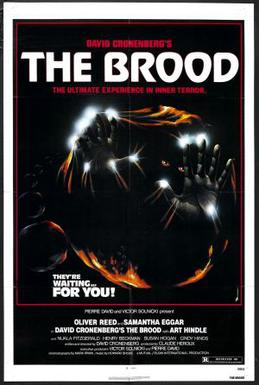
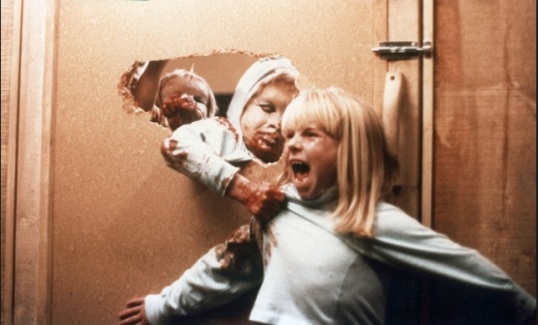

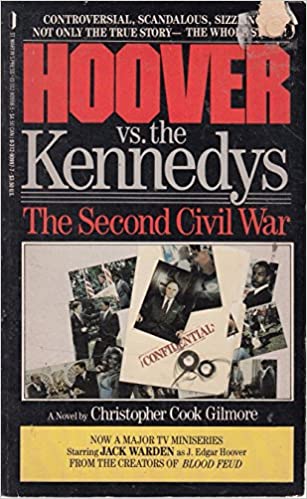
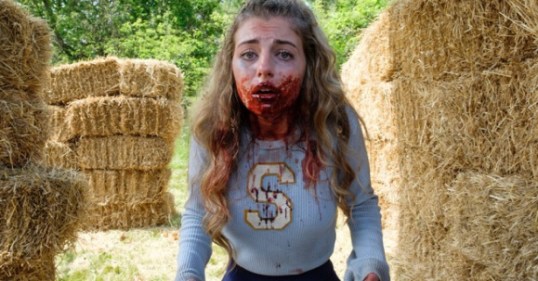
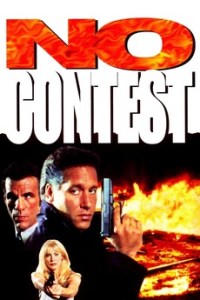 Under the direction of their leaders, Oz (Andrew “Dice” Cay) and his second-in-command, Ice (Roddy Piper), a diverse group of terrorists have taken the Miss Galaxy contest hostage. If they don’t receive a ransom of diamonds, they will kill the Miss Galaxy contestants, including the daughter of a powerful senator. What the terrorists didn’t count on was that the show would be hosted by actress and kick boxer Sharon Bell (Shannon Tweed). Now, it’s up to Sharon to sneak through a locked-down hotel, killing the terrorists one-by-one. Her only help comes from a battle-scarred but supportive security officer (Robert Davi) locked outside of the hotel.
Under the direction of their leaders, Oz (Andrew “Dice” Cay) and his second-in-command, Ice (Roddy Piper), a diverse group of terrorists have taken the Miss Galaxy contest hostage. If they don’t receive a ransom of diamonds, they will kill the Miss Galaxy contestants, including the daughter of a powerful senator. What the terrorists didn’t count on was that the show would be hosted by actress and kick boxer Sharon Bell (Shannon Tweed). Now, it’s up to Sharon to sneak through a locked-down hotel, killing the terrorists one-by-one. Her only help comes from a battle-scarred but supportive security officer (Robert Davi) locked outside of the hotel.
